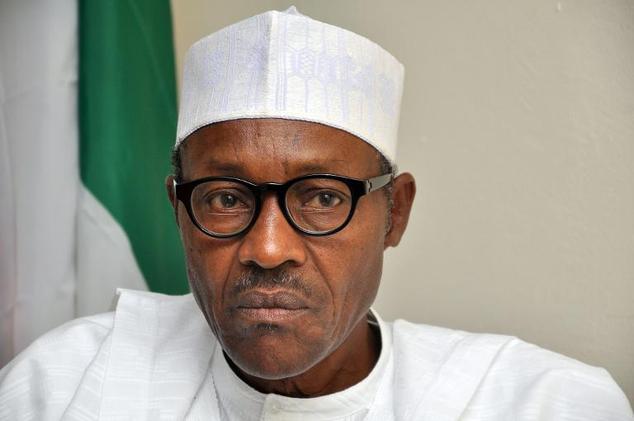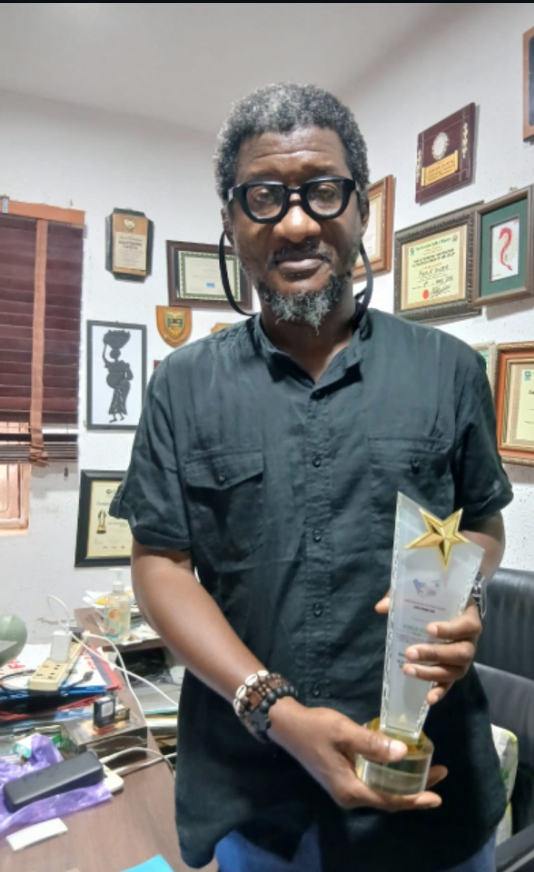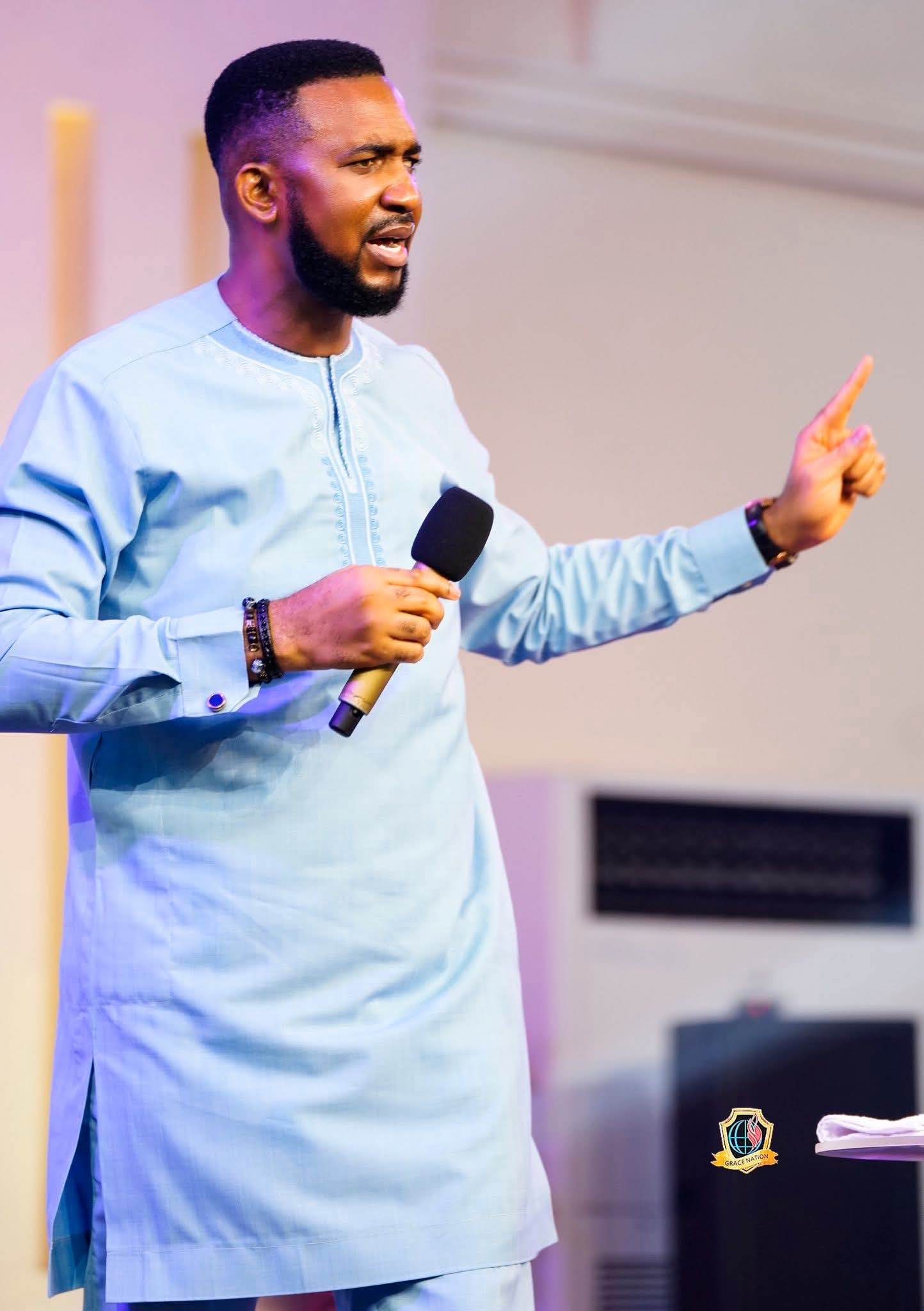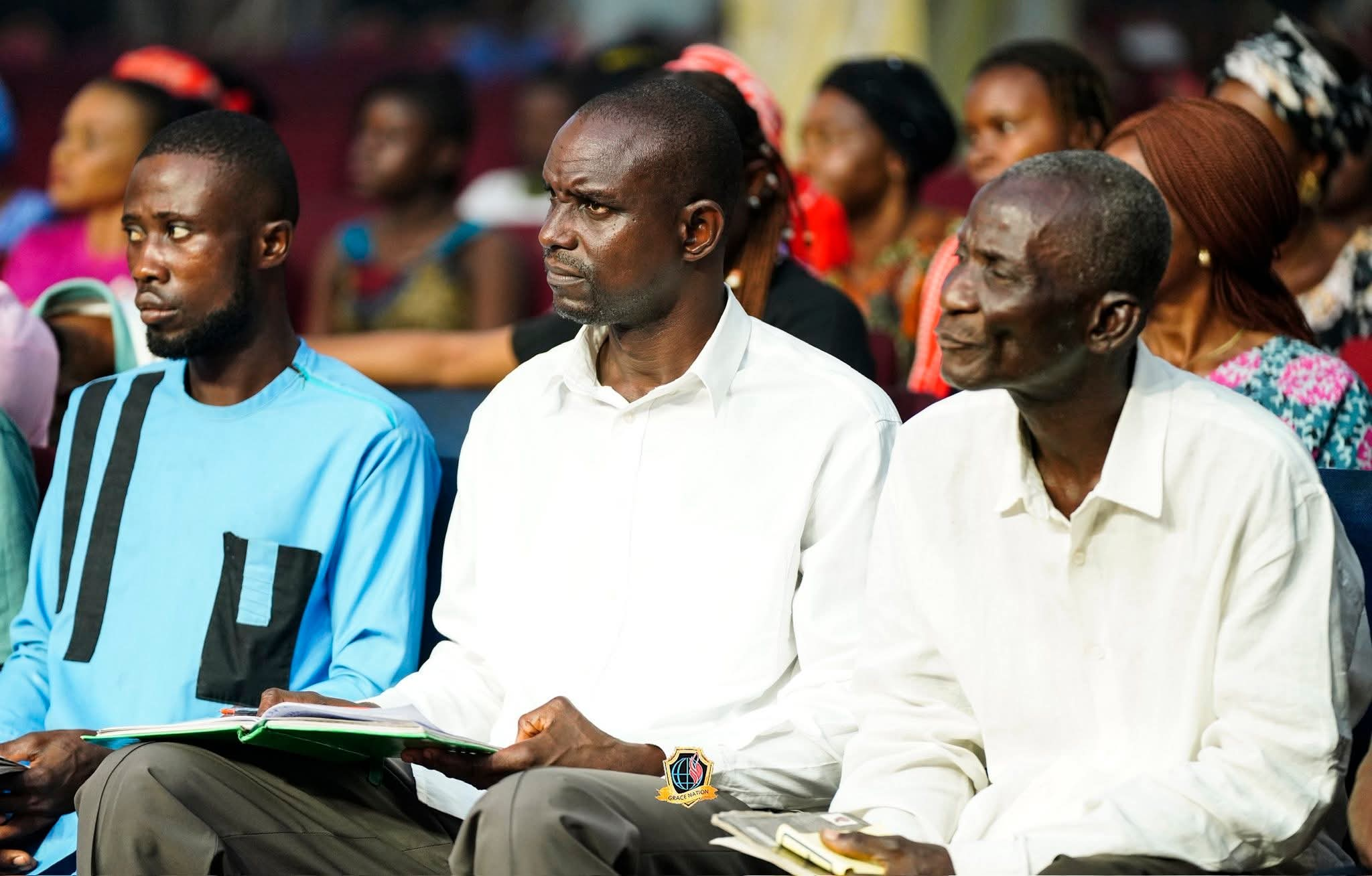celebrity radar - gossips
Revealed The Incompetence of Minister of Power, Sale Mamman And effect On Buhari’s Administration

When President Muhammadu Buhari got into office as President for the first time in 2015, he promised to give Nigerians the best and work with the best set of people that would join him to move Nigeria forward.
This, he did with the appointment of people with the ability and capability to make changes and one of the stars of his government then was a former governor of Lagos State, Mr. Babatunde Raji Fashola, who was given three portfolios of Power, Works and Housing.
However, after emerging victorious in the 2019 General Elections, President Muhammadu Buhari felt he needed to make some changes and rejuvenate his government for better performances.
Indeed, it was believed that the tenure of Mr. Fashola led to some progress in the power sector, but it appeared Buhari decided to relieve him of some workload and limit him to the Ministry of Works and Housing.
With this, a new person was appointed as the Minister of Power in person of Engineer Sale Mamman.
Many Nigerians had expected that being an engineer, Sale Mamman would move the ministry further and bring a relief to Nigerians, who had clamoured for increase in power supply so that the country could catch up with the rest of the world in the area of electricity generation.
But events have since revealed that Sale Mamman might not be the “messiah” the country needed to move the power sector forward with what he had been doing since he got into office few months back.
Sources revealed that if urgent and critical measures were not taken by the government of President Muhammadu Buhari the power sector might be in for the worse under Mamman.
He has since been seen as the weakest link in the cabinet of President Muhammadu Buhari with several policy summersaults which only shows that his thought process for the ministry lacks depth and intelligence.
Sources stated that Sale Mamman is expected to be a technocrat in the government of Buhari and give informed pieces of advice “rather than being a clog in the wheel of progress of the government.”
Engr. Mamman’s profile is not even intimidating. Mamman was born on January 2, 1958 and holds a Higher National Diploma (HND) in Electrical Electronics from Kaduna Polytechnic in Kaduna State in 1988 and an MBA from Bayero University, Kano in 2015.
He started work as a teacher in Technical School Mubi, Adamawa State in 1981 and transferred his service to the newly created Taraba state in 1992.
He rose to the rank of Assistant Director in the ministry of works in the state before retiring in 2002.
He later became a full time businessman and politician.
Events in the Power Ministry indicated that Sale Mamman personalized critical decisions within the Power Ministry and its Agencies, “even to the detriment of the collective good of Nigerians, whose bidding he swore to do.”
It will be recalled that Sale Mamman indefinitely suspended the Managing Director of the Rural Electrification Agency (REA), Damilola Ogunbiyi recently, but this was reversed by President Muhammadu Buhari, and this further lent credence to “his high level high handedness.”
Damilola Ogunbiyi, from her time as Senior Special Adviser on Public Private Partnership (PPP) to the Lagos State Governor and then as General Manager of Lagos State Electricity Board to being appointed to oversee the REA, had displayed competence in her chosen career path in the energy sector, which gave rise to her appointment as Chief Executive of the United Nations’ Sustainable Energy for All.
Ogunbiyi’s “suspension”, which came months after she tendered her resignation to enable her proceed to her new role at the United Nations, was greeted with widespread condemnation even within the Rural Electrification Agency (REA) as staffs berated the Minister for “hating women”.
Nigeria’s loss then became the gain of the the UN.
On the same day, in what was called “reorganization/sanitation in the Federal Ministry of Power”, Sale Mamman, through his spokesperson, Aaron Artimas, in a release had asked the Managing Director of the Nigerian Bulk Electricity Trading Company (NBET), Marilyn Amobi to “step down and hand over to the most senior Director of the Organisation”.
But President Muhammadu Buhari later reversed the dismissal of Marilyn Amobi as the MD of (NBET).
The directive was contained in a memo issued by the office of the Secretary to the Government of the Federation (SGF).
The agency was also moved from the Ministry of Power to the Ministry of Finance.
In December 2019, Sale Mamman asked Amobi to step down with immediate effect in order to “restore sanity” in the management of the agency.
The minister also directed the constitution of a 5-man investigative committee to look into the allegations against the MD.
Nnaemeka Ewelukwa, a general manager of the agency, immediately assumed office as the acting managing director of NBET.
Ewelukwa has been asked to step aside for Amobi to resume her former position.
It would be recalled that few weeks ago, the National Union of Electricity Employees embarked on strike to protest what was alleged as failure of the Minister of Power to implement their demands on the privatization of the Power Sector.
In a memo dated November 7 2019, and sent to the Minister, NUEE had threatened to declare a nationwide strike if its demands were not met. It was in fact, stated in the memo that previous letters to the Minister since his assumption of duty as Power Minister had gone unacknowledged.
How would a Minister of Power show apathy for its workers and their plights?
“But for the swift intervention of some senior staff in the Ministry, who had first met with the Electricity Workers’ Union weeks before they embarked on the industrial action that plunged the country into darkness for nearly 24 hours, the situation would have further gone unattended and the nation plunged into perpetual darkness. Nigeria has never had it that perilous,” said a source.
It will be recalled that the tension that Mamman’s decisions of easing out the MDs of REA and NBET was yet to abate, when he appointed two of his kinsmen as Directors into the REA.
Sale Mamman had given specific directives that the Directors be in charge of Procurement and Funds within the REA.
The Directors are Dr. Lawal Ibrahim (Funds) and Mr. Bulus Maiyaki (Procurement). While Maiyaki was internally redeployed, Ibrahim was purportedly shipped in from outside.
In a memo dated December 27, 2019, Sale unilaterally made the postings.
The manner of the appointments called for concern.
The Human Rights Writers Association (HURIWA) had asked Mr Saleh Mamman, to withdraw the appointment he made in the Rural Electrification Agency (REA).
HURIWA National Coordinator,Comrade Emmanuel Onwubiko in a statement he made in Abuja disclosed that the group had written the Independent Corrupt Practices and Other Related Offences Commission (ICPC) to clarify the status of one of the new appointees in the Procurement Unit.
Onwubiko alleged that the appointments made in REA were lopsided.
The statement reads in part: “HURIWA does not want or intend to dabble into the internal politics that motivated the Honourable minister of Power into making those appointments.
“But we are basically writing to protest the lopsidedness observable in this action and the breach of the ethical codes as clearly stated out by the appointing authority through the office of the Secretary to the Government of the Federation as emphasized by a memorandum of modus operandi authored by the Secretary to the Government of the Federation.”
A source wondered why Mamman had been embarrassing the government of President Buhari “as if he is the only minister in the cabinet.”
It is believed that Sale Mamman is incapable of taking the country out of the woods in the power sector and that rather than settling down to proffer solutions to the numerous problems facing the sector, “he is busy chasing shadows and dealing with perceived enemies.”
celebrity radar - gossips
Another Feather for Nollywood Icon Fidelis Duker

**Another Feather for Nollywood Icon Fidelis Duker
*Lagos, Nigeria* — In a remarkable celebration of artistic achievement, renowned Nollywood figure Fidelis Duker received yet another prestigious accolade last weekend, solidifying his role as a key player in the growth of the Nigerian and African film industries. The award was presented in a ceremony held at Duker’s Lagos office by esteemed film and theatre director, Mr. Alex Eyengho, founder of the Warri International Film Festival, alongside Marketing and Strategy Director, Mrs. Matel Eyengho.
The recent recognition builds upon Duker’s previous achievement at last year’s ECOFEST in Dakar, where he was honored with a Lifetime Achievement Award. This latest accolade is a testament to his unwavering dedication and substantial contributions to the cinematic landscape.
“I am truly humbled by this recognition,” Duker expressed during the event. In his speech, Alex Eyengho lauded Duker’s pioneering efforts in establishing significant film festivals in Nigeria, particularly the Abuja International Film Festival, which has played a vital role in promoting local talent and storytelling.
Eyengho emphasized, “Fidelis has not only paved the way for emerging filmmakers but has also helped elevate Nigerian cinema on the global stage. His creative vision and commitment inspire all of us in the industry.”
As Duker reflects on this honor, he acknowledges the importance of teamwork and collaboration in achieving success. “This acknowledgment reaffirms to my team and me that our work is being observed, and it motivates us to continue contributing to the development of our sector,” he stated.
With numerous projects on the horizon, Duker remains a relentless advocate for the growth and recognition of African cinema. His latest recognition is yet another testament to the vibrant and evolving landscape of Nollywood, as industry leaders like him continue to inspire future generations.
As the film industry anticipates the next phase of development, Duker’s continued influence signals a promising future for filmmakers in Nigeria and across the continent.
celebrity radar - gossips
E‑Money’s Grand Gesture: A Closer Look at the SUV Gift to Chinedu “Aki” Ikedieze

E‑Money’s Grand Gesture: A Closer Look at the SUV Gift to Chinedu “Aki” Ikedieze
By George Omagbemi Sylvester | Published by SaharaWeeklyNG
“Public Generosity, Celebrity Loyalty and the Symbolism of Wealth in Nigeria’s Entertainment Elite.”
On Tuesday, February 17, 2026, Nigerian billionaire and entrepreneur Emeka Okonkwo, widely known as E‑Money, once again captured national attention with a lavish and highly publicised act of generosity, gifting a brand‑new 2024/2025 Ford SUV to veteran Nollywood actor Chinedu Ikedieze, affectionately called Aki, during his high‑profile birthday celebration.
The event, held in Lagos amidst a constellation of entertainers, business figures and socialites, was itself part of an annual tradition in which E‑Money marks his birthday (on February 18) with large‑scale giveaways and spectacular shows of material philanthropy. This year, he announced the gift of over 30 cars to friends, staff and family, a gesture that quickly went viral as videos and images circulated across social media platforms.
In the case of Ikedieze, E‑Money’s gift appeared to be deeply personal. During the festivities, E‑Money stood beside his elder brother, Grammy‑nominated musician KCee and recounted how Ikedieze stood by him at his 2007 wedding. The billionaire explained that the SUV was a “token of appreciation” for the enduring support the actor had shown over the years which is a narrative that blends friendship with public celebration.
Ikedieze, a Nollywood staple with a career spanning more than two decades and over 150 film credits, including the iconic Aki na Ukwa franchise, visibly reacted with humble surprise as he received the vehicle, bowing his head in respect and gratitude. The actor later shared the moment on his Instagram account with a caption celebrating the gift, further fuelling online engagement around the event.
Beyond the spectacle, this incident underscores evolving dynamics in Nigerian celebrity culture and the intersection of wealth, influence and reciprocity. Sociologist Dr. Chinedum Uche of the University of Lagos, speaking on the broader implications of such high‑profile gifts, notes: “Philanthropy that is highly publicised can reinforce social bonds, but it also reflects a culture where generosity is intertwined with reputation economy; where giving becomes as much a social signal as it is an act of kindness.” The quote highlights how public acts of wealth transfer among elites serve layered social functions that extend beyond pure altruism.
Critics of such displays argue that ostentatious giveaways, particularly in a country with stark economic disparities, risk amplifying social envy and exacerbating perceptions of inequality. Economist Dr. Ifunanya Nwosu from the Lagos Business School observes: “In societies marked by economic stratification, celebrity largesse may inspire admiration, but it can also inadvertently highlight structural inequities; prompting questions about systemic investment in public welfare versus individual generosity.”
Still, supporters maintain that E‑Money’s annual tradition (which has in past years included cash gifts to his brother KCee, comedians and even domestic staff) reflects genuine gratitude and a commitment to uplifting his immediate circle, albeit within the private sphere.
For Ikedieze, the SUV stands both as a heartfelt gesture from a longtime friend and a public affirmation of their enduring relationship. As the video of the moment continues to circulate, the broader narrative has ignited discussions about the role of private wealth in public life, celebrity culture and how acts of giving are interpreted in contemporary Nigerian society.
In a landscape where influence and generosity often play out in equal measure on public stages, E‑Money’s gift to Aki is more than a headline, it is a flashpoint in ongoing debates about wealth, friendship and visibility in Nigeria’s entertainment and entrepreneurial ecosystem.
celebrity radar - gossips
Spiritual Reality: Wicked People Are Possessed by Wicked Spirits — Dr. Christian Okafor

Spiritual Reality: Wicked People Are
Possessed by Wicked Spirits — Dr. Christian Okafor
…..“You don’t need to offend them before they attack you.”
…..“Your only true help comes from God.”
Demons are strategic and calculating. They detect threats quickly and position themselves to resist any power that may expose or overpower them.
According to the Generational Prophet and Senior Pastor of Grace Nation Global, Christian Okafor, spiritual intelligence operates both in light and in darkness—and believers must understand this reality.
Dr. Okafor delivered this message on Thursday, February 19, 2026, during the midweek Prophetic, Healing, Deliverance and Solutions Service (PHDS) held at the international headquarters of Grace Nation Worldwide in Ojodu Berger, Lagos, Nigeria.
The Operations of Demons
Teaching on the subject “Spiritual Reality” with the subtitle “Operations of Demons,” the Man of God explained that when demons possess individuals, their behavior changes. Such people may attack, bully, or resist those sent by God to help them, unknowingly rejecting divine assistance and prolonging their struggles.
“You don’t need to offend a demon before it attacks you,” he said. “What you carry is enough to provoke opposition. The greater your potential, the greater the battle.”
Dr. Okafor noted that many believers misinterpret battles as signs that God has abandoned them. However, he explained that some battles are permitted for growth, training, and divine glorification.
According to him, God may allow certain confrontations so that believers understand spiritual warfare and emerge stronger.
“Some battles are necessary,” he emphasized. “They push you into your turning point.”
He further stated that God does not respond to lies, blackmail, or bullying. He responds to His Word. Therefore, opposition is not proof of God’s absence, but often evidence of destiny at work.
The Weapon Against Demonic Attacks
Addressing solutions, Dr. Okafor described prayer as the strongest weapon against satanic operations.
“Prayer is the license that invites God into your battles,” he declared. “God does not intrude—He responds to invitation.”
According to the Apostle of Altars, understanding the principles and discipline of prayer enables believers to receive divine strategies for overcoming demonic resistance. Without prayer, he warned, spiritual help cannot be activated.
“You cannot receive help without God,” he concluded. “And you cannot engage God without prayer.”
Manifestations at the Service
The midweek gathering was marked by a strong move of the Spirit, with testimonies of deliverance, miracles, restoration, and solutions to various challenges presented before God. Several individuals reportedly committed their lives to Christ during the service.
-

 celebrity radar - gossips6 months ago
celebrity radar - gossips6 months agoWhy Babangida’s Hilltop Home Became Nigeria’s Political “Mecca”
-

 society6 months ago
society6 months agoPower is a Loan, Not a Possession: The Sacred Duty of Planting People
-

 society5 months ago
society5 months agoReligion: Africa’s Oldest Weapon of Enslavement and the Forgotten Truth
-

 news6 months ago
news6 months agoTHE APPOINTMENT OF WASIU AYINDE BY THE FEDERAL GOVERNMENT AS AN AMBASSADOR SOUNDS EMBARRASSING










